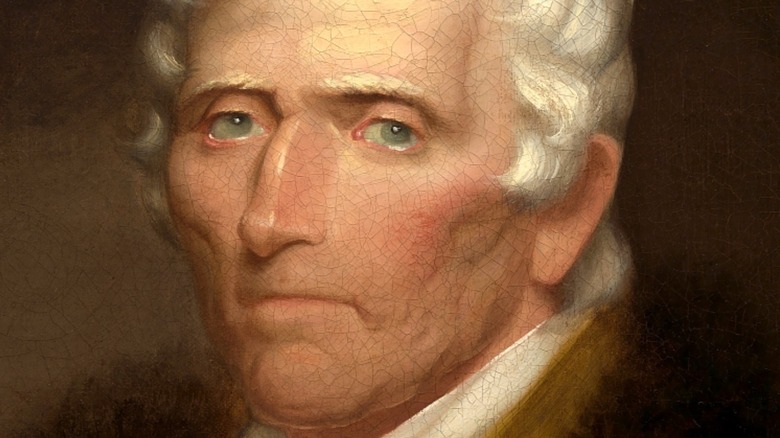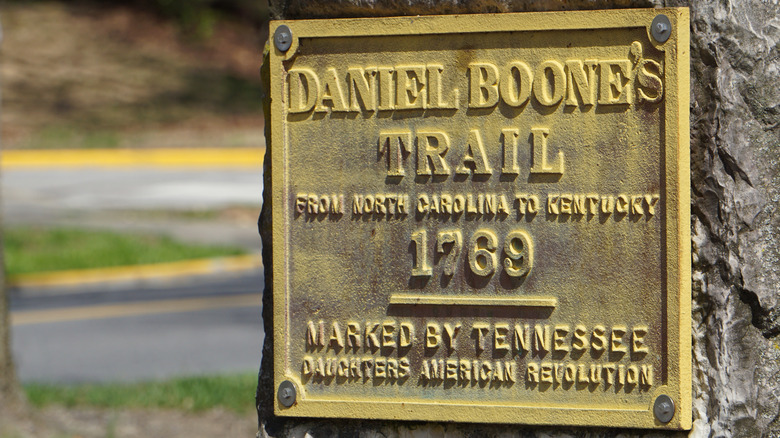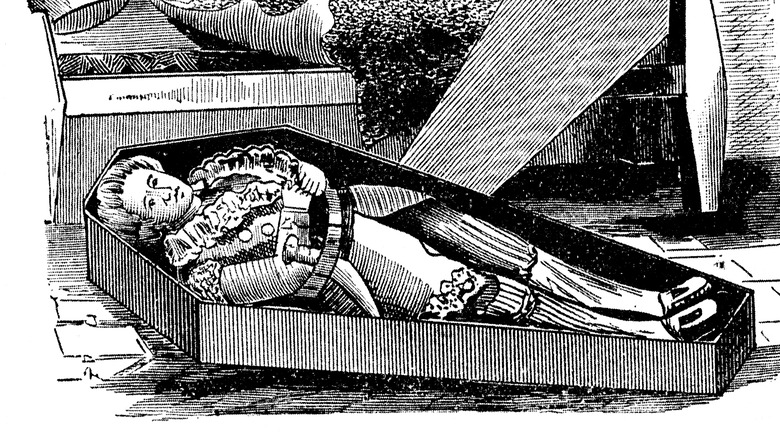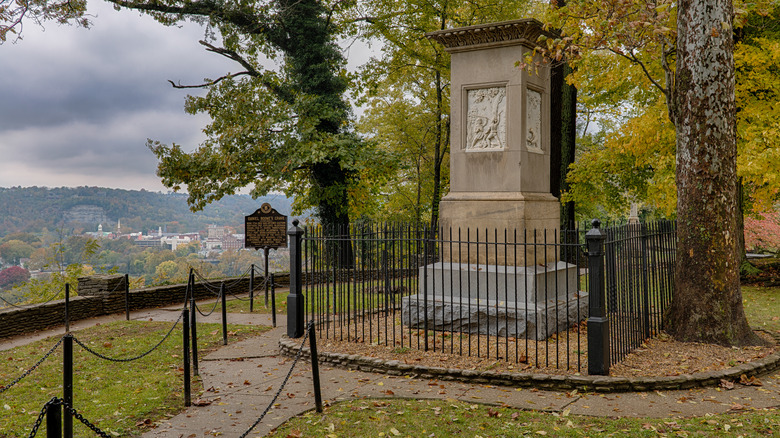Where Is Daniel Boone Buried?
After a life filled with daring escapes, harrowing battles, and rugged journeys through the unbroken wilderness, the explorer and frontiersman Daniel Boone died peacefully in his sleep at age 86. On September 26, 1820, surrounded by his family, he died in the home of his son Nathan near what is now Defiance, Missouri, according to History and the 1902 biography "Daniel Boone." By the time of his death, he'd become a legend, and his past, that included stealing land from Native Americans, making poor business decisions, and being sued by the residents of the town he founded in Kentucky, had given way to mythologizing.
Upon learning of his death, the Pennsylvania Republican newspaper described him as "one of the most enterprising and intrepid men this country ever produced" who "delighted in perils and battle." After Boone died, his remains, like the unsettled and meandering path Boone took through life, made a similar journey that included two different graves and rumors that his imposing monument may actually contain the wrong body.
Daniel Boone paved the way for westward expansion
Daniel Boone was born November 2, 1734, to Quaker parents near Reading, Pennsylvania, per Biography. His mother taught him to read and write while his father schooled him in wilderness survival. Daniel became an exceptional marksman while still in his early teens. After fighting in the French and Indian Wars on the side of the British, he began his career as a trailblazer and guide (and also served two terms in the Virginia legislature), per Biography. He helped blaze the Wilderness Trail through Virginia's Cumberland Gap. This route west opened Kentucky and the Ohio River Valley to white American colonization.
He founded a settlement, Fort Boonesborough, on Native American land in 1775, which inevitably led to conflicts with the Cherokee and Shawnee tribes, per Biography. He was wounded in battle and on another occasion taken prisoner, but through it all, he managed to stay alive. Boone was less fortunate with his business dealings and lost his Kentucky property for failing to properly register it, and was robbed of other settlers' money, leading to a lot of angry residents, per History and Biography.
A misreported death and a casket
In 1799, after being sued by some of Fort Boonesborough's citizens, he and his family moved further west, to Missouri. By then, Boone had become a legend, helped along by a ghost-written autobiography that came out in 1784, per Kentucky Humanities. His fame eventually spread from the U.S. to Europe. The romantic poet Lord Byron even included Boone in his epic poem "Don Juan," published a year before Boone's death, in which Byron portrays him as the quintessential frontiersman who preferred "wilds of deepest maze" to "cities caged," per JSTOR.
Like the writer Mark Twain who was born 15 years after Boone's death in the same state, who once quipped to a British reporter that "the report of my death was an exaggeration," the nation's newspapers prematurely reported Boone had died in 1818, according to the 1992 book "Daniel Boone: The Life and Legend of an American Pioneer." The mistake only strengthened Boone's mythic status. He in fact lived for two more years, partially blind and arthritic, but still active, per the book. In the years following his wife Rebecca's death in 1813, to whom he'd been married for more than 50 years, mortality was a subject that weighed heavily on him.
Two graves and rumors about burying the wrong body
Daniel Boone even had his casket built while he was still living and would often inspect it. His granddaughter would shudder while watching him "thump around his coffin, whistling so happy and content," and Boone often told her that he was tired of living, according to "Daniel Boone: The Life and Legend of an American Pioneer." When he did finally succumb, the news quickly traveled across the country, and the newspapers soon filled with stirring eulogies to Boone. The Missouri legislature, then amid writing the state's constitution, took the day off in his honor and wore black armbands for a month, according to "Daniel Boone."
After Boone's death in 1820, his family buried him in Marthasville, Missouri, next to his wife, per Roadside America. In 1845, the Kentucky legislature asked the state of Missouri for permission to move the remains of Daniel Boone and his wife to a brand-new cemetery in Frankfort, Kentucky, per Kentucky Humanities (pg. 19). After some pushback, their bodies were exhumed and reburied, with an imposing monument added to their graves in 1860, per "Daniel Boone." But many claim the Kentuckians removed the wrong body, per Roadside America. It wasn't until 2010 that it was conceded at least some of Daniel Boone's bones had made the journey from Missouri to Kentucky.



